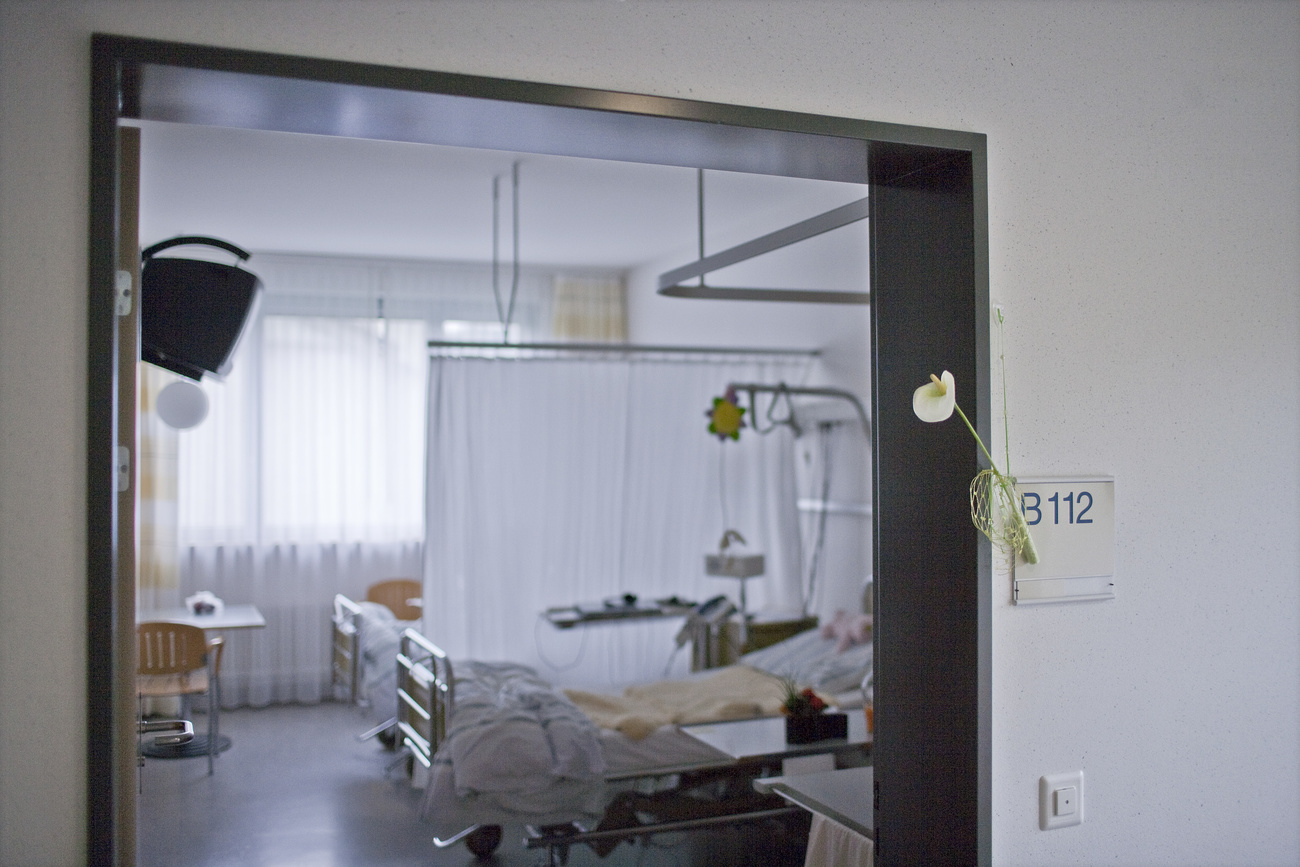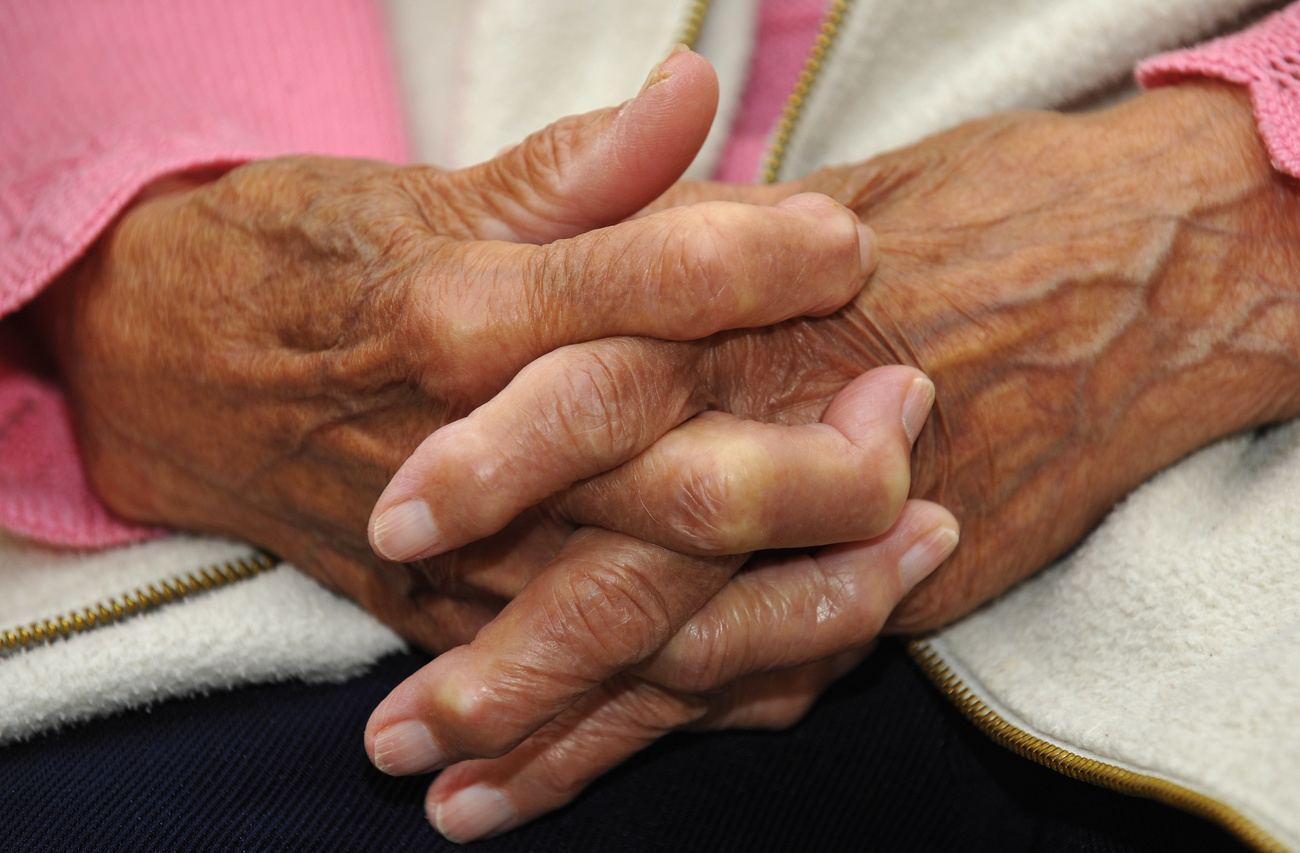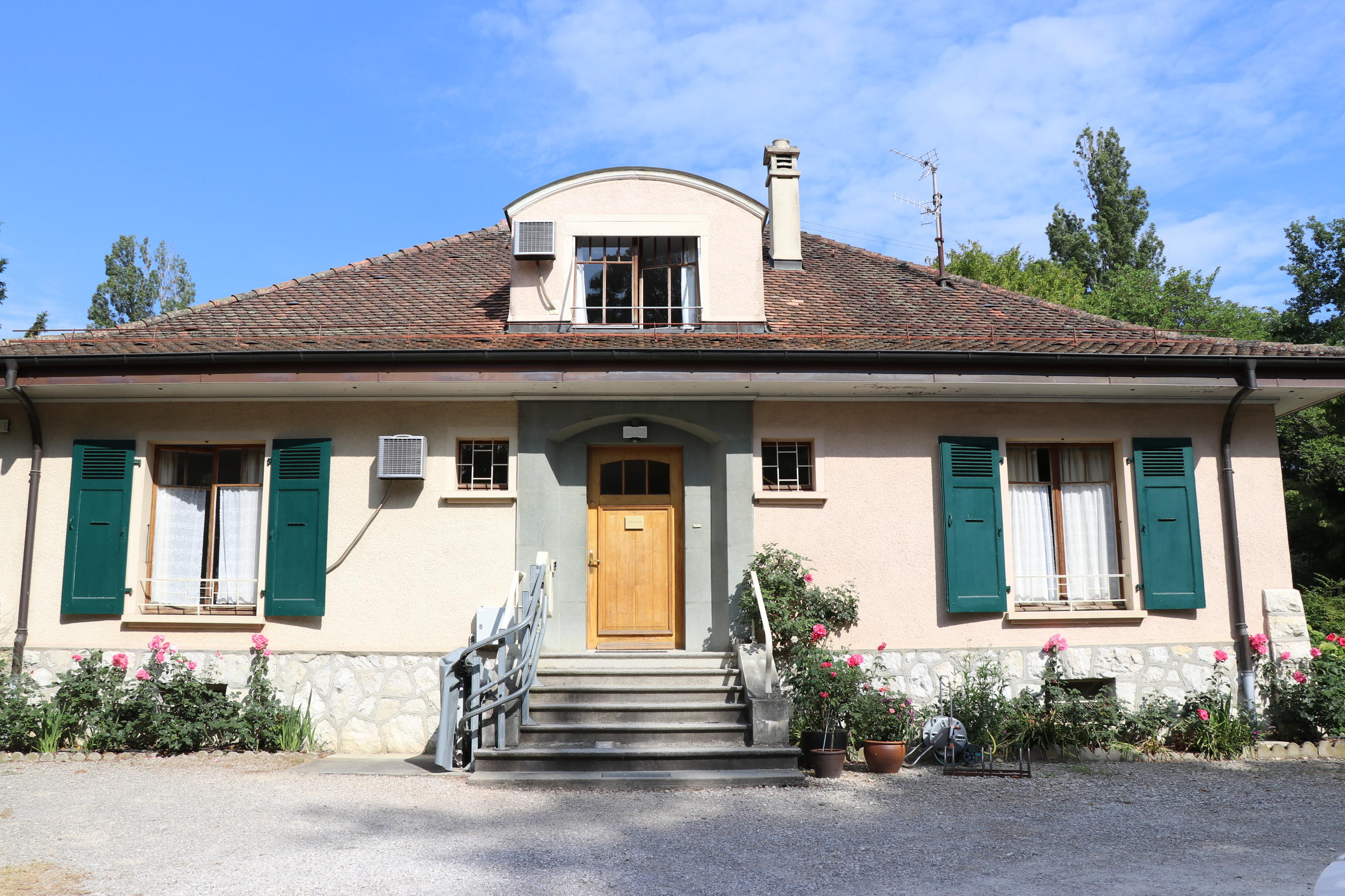Palliative care: is Switzerland a good place for the terminally ill?

Assisted suicide in Switzerland has long attracted international attention. But its palliative care system is less well known. This form of support at the end of life is underfunded even as demand outstrips capacity.
“I’m going to Switzerland.” In some countries, this sentence is synonymous with the decision to opt for assisted suicide. The Alpine nation is one of the most liberal countries when it comes to assisted suicide, with around 1,500 people every year choosing to end their lives voluntarily.

More
Membership in Swiss assisted-suicide organisations reaches record high
But this does not make Switzerland a model country when it comes to palliative care. According to an international study published in 2022 by researchers from Singapore and the United States, Switzerland ranks 13th out of 81 countries in terms of the best “quality of dying”. In first place is the United Kingdom, the country where palliative care originated.
The survey analysed the quality of palliative care on the basis of a questionnaire sent to experts in each country. Switzerland does not score well on the psychological care patients receive and the possibility of dying in a place of their choice, such as a hospital, hospice or at home.
>>Detailed country reports can be found on this page.External link
How many palliative care beds are there in Switzerland?
According to the Swiss association for palliative careExternal link, the number of specialised and certified palliative care beds in the country rose from 375 in 2021 to 393 in 2022. This increase is due to the certification of two new wards.
In total, there were 3,736 beds available in 26 of the 35 certified long-term care institutions (retirement and nursing homes) in Switzerland in 2022.
What are certified palliative care beds?
The “qualité palliative” label was introduced in 2010 as part of the national palliative care strategy in collaboration with the Federal Office of Public Health and the Conference of Cantonal Health Directors. Accredited facilities offer high-quality palliative care and must prove that they fulfill certain quality standards.
What is specialised palliative care?
Almost 80% of those who need palliative care fall under the general care category: that is, their needs can be reasonably managed at home, a retirement home or nursing home, or in a hospital for acute care.
Specialised palliative care may be necessary for 20% of patients due to an unstable health condition, complex treatment or need for intensive caregiving. This kind of specialised palliative care External linkcan also be offered in hospitals, nursing homes, or even at home.
However, the number of beds is not sufficient. According to the recommendation of the European Association for Palliative Care, 100 specialised palliative care beds are needed for every 1 million inhabitants. In Switzerland, with its 8.7 million inhabitants, this would be 870 beds, more than double the number currently available.
According to the Federal Office of Public Health, six of the 26 cantons do not have a single specialised palliative care bed. Hospices and long-term care facilities are also disproportionately located in urban areas, such as Zurich, Geneva and Basel.
>>To find out about nursing homes and palliative care centres in the country, take a look at this mapExternal link.
The problem is not just regional inequality. According to a report by the University of Bern, over 70% of people in Switzerland wish to die at home. Among the terminally ill, however, 79% of patients die in hospitals or nursing homes.
In an interview with the health sector news portal medinside.ch, David Blum, an expert in palliative medicine and assistant professor at the University of Zurich, explains: “Many patients live alone at home. One partner alone is often not enough to take over the care.” Mobile palliative care services therefore need to be strengthened, he says.
How is demand for palliative care evolving?
Most people who receive palliative care in Switzerland are cancer patients. According to the Federal Office of Public Health, 5,990 hospitalised people, or 12% of those who died in hospital in 2018, received palliative care. More than 80% of them had cancer.
According to estimates by the polling firm INTERFACE, the potential need for palliative care is much higher and is expected to increase further as the population ages.
According to population-based estimates, around 50,000 people needed palliative care in 2020, a figure that’s expected to rise to 66,000 by 2050.
How well is palliative care funded in Switzerland?
For 15 years, the federal government has been working on expanding the infrastructure as part of the National Strategy on Palliative Care (2010-2015), focusing on funding, raising awareness and promoting education and research. The government has also launched a national platform to promote the exchange of knowledge between the stakeholders involved.
However, palliative care is still not a low-threshold service for patients or healthcare professionals.
This is because palliative care is not regulated separately in the Federal Health Insurance Act. Some services are not covered by compulsory health insurance, which can lead to high costs for patients.
Palliative care specialists also criticise the flat-rate-per-case financing system. The principle that a certain amount is paid for a certain treatment does not meet the needs of palliative care.
According to H, a national association of public and private Swiss hospitals and care institutions, almost all facilities offering palliative care are underfunded, including hospitals, nursing homes and hospices.
Some critics see these structural deficiencies as the reason why palliative care is not expanding in Switzerland.
The government is hesitant to act. In 2021, the House of Representatives passed a motion calling for an increase in funding for palliative care and the necessary legislative changes. A total of 13 organisations, including H and the home-care and assistance organisation Spitex, issued a joint declaration last November calling for the motion to be implemented as quickly as possible.
Edited by Marc Leutenegger. Translated from German

More
A Swiss hospice where people can die with dignity

In compliance with the JTI standards
More: SWI swissinfo.ch certified by the Journalism Trust Initiative









You can find an overview of ongoing debates with our journalists here . Please join us!
If you want to start a conversation about a topic raised in this article or want to report factual errors, email us at english@swissinfo.ch.